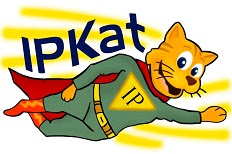The Fourth Chamber of the STJ unanimously upheld the appeal brought by the Brazilian Insituto Nacional da Propiedade Industrial (INPI) regarding the dismissal to extend three pharmaceutical patents.
While this decision appears to have taken place back in December, it has recently been published by the Brazilian Superior Court (STJ).
The decision goes in line with previous ones and confirms the understanding of the pipeline system used by the patent system in Brazil i.e. term of the patent is to be count from the first application abroad even in circumstances in which such application was abandoned or extended in another country. We may recall that Brazil did not grant patent protection to pharmaceutical and agricultural products BUT because of its commitments as part of the TRIPS agreement, there was the need to accommodate the national system.
The drugs:
1. - drug used for cardiovascular disorders; active ingredient sildenafil citrate. Patent to expire on 09/07/2011, extension sought until 02/07/2012.
2. - drug used as a veterinary anti-parasitic; active ingredient selamectin. Patent to expire on 18/01/2013; extension sought until 12/01/2014.
3.-drug for migraine; active ingredient bromide eletriptan. Patent to expire on 15/10/2010; extension sought until 13/08/2013.
Source INPI.
Meatless in Paris
9 hours ago














2 comments
Write commentsI don't understand the sentence in the post, about the need to accommodate the national system, which appears to suggest (incorrectly) that pipeline patents were required to conform to TRIPS.
ReplyTRIPS clarify that inventions include both: products and processes and that members cannot discriminate against inventions in a specific field of technology. This means that Brazil as a member of TRIPS cannot deny patents to inventions in the field of medicine as it did before joining the TRIPS. That said, Brazil needed to amend its legislation to provide protection.
ReplyThe pipeline system is a protection that was adopted due political pressure from developed countries (Scott Harrison). This system provides patents to inventions that were 'in the pipeline' of development when new laws were put into place for patentability of medicines.
In other words, in Brazil the pipeline system protects a medical patent that otherwise would not be patentable before or after the new patent law.
Before: the law did not allow it
After: novelty was destroyed
Hope this clarify any misunderstanding.